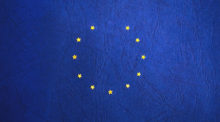Randall Hansen
One year ago tomorrow, I entered a wine shop in West London, found a decent bottle and handed it to the salesperson. Earlier that morning I’d learned Britons had voted in favour of leaving the European Union. I was confused and, frankly, devastated. This definitely called for commiseration over a drink with an old friend from student days.
The woman behind the till, a recent migrant I assumed from the accent, asked me how I was. I replied, ‘I’ve been better.’ She said, ‘Me too.’ I saw a tear forming in her eye, and I too had to fight one back. Though I am British only by naturalization and she the same or not at all, the emotion was too un-English for both of us. I grabbed my bottle and mumbled a goodbye.
A year after the shock of Brexit, the effects of the vote seem clearer to me, though seemingly not to much of the British commentariat. The immediate economic crash which many – myself included – expected did not materialize, but nothing that has happened since has revised my view of the vote: it was a disaster. Indeed, it is one of the three worst decisions taken by any British government since at least 1945 – Britain’s role in the Suez Crisis and its failure to join the European Economic Community in the later 1950s being the other two.
Right wingers still cling to the baseless belief that Brexit will be a success. But there is also something close to a consensus in the centrist and leftwing British press that the recent election gave Brexiters a much-deserved bloody nose. All the British need to do is decide what they want in a ‘soft Brexit’ and a deal will be possible.
This reflects, alas, the sort of naiveté that got the country into this mess in the first place. For, in fact, the election changed relatively little. Britain still faces the same choices. It was and is in a terribly weak position; EU negotiators hold most of the cards.
In the months since the referendum, the major European players – Chancellor Merkel of Germany, President Macron of France, the President of the European Commission – have made it clear that there will be no special deal for Britain. A ‘soft Brexit’ means either staying in the single market (a free trade zone) or in the customs union (a common tariff zone). Staying in the single market means accepting the free movement of workers; staying in the customs union means forgoing the right to negotiate free trade deals. Both are anathema to Brexiters, who promised both control of British borders and sunlit uplands in which new trade deals would allow a country with a chronic balance of payments deficit to export its way to prosperity. Their vision requires a ‘hard Brexit:’ leaving both single market and customs union.
Short of cancelling Brexit entirely (the ideal choice, but one that will likely not be made as it would destroy the Tory party), the best option is the Norwegian model: joining the European Economic Association. This would give access to the single market and allow negotiation of other trade deals. Membership, assuming the other members agree, would come with a cost: Britain would have to pay a hefty annual access fee, allow the free movement of EU workers, and accept all EU decisions on free market rules while having no influence on them.
These are the choices Britain faced before the election; they are the choices it faces now. All available options are inferior to full membership in the EU. Such is the price of former British prime minister David Cameron’s gambit in calling the referendum and of the delusional belief that ‘taking back control’ is possible in a globalized world.
June 23, 2017
